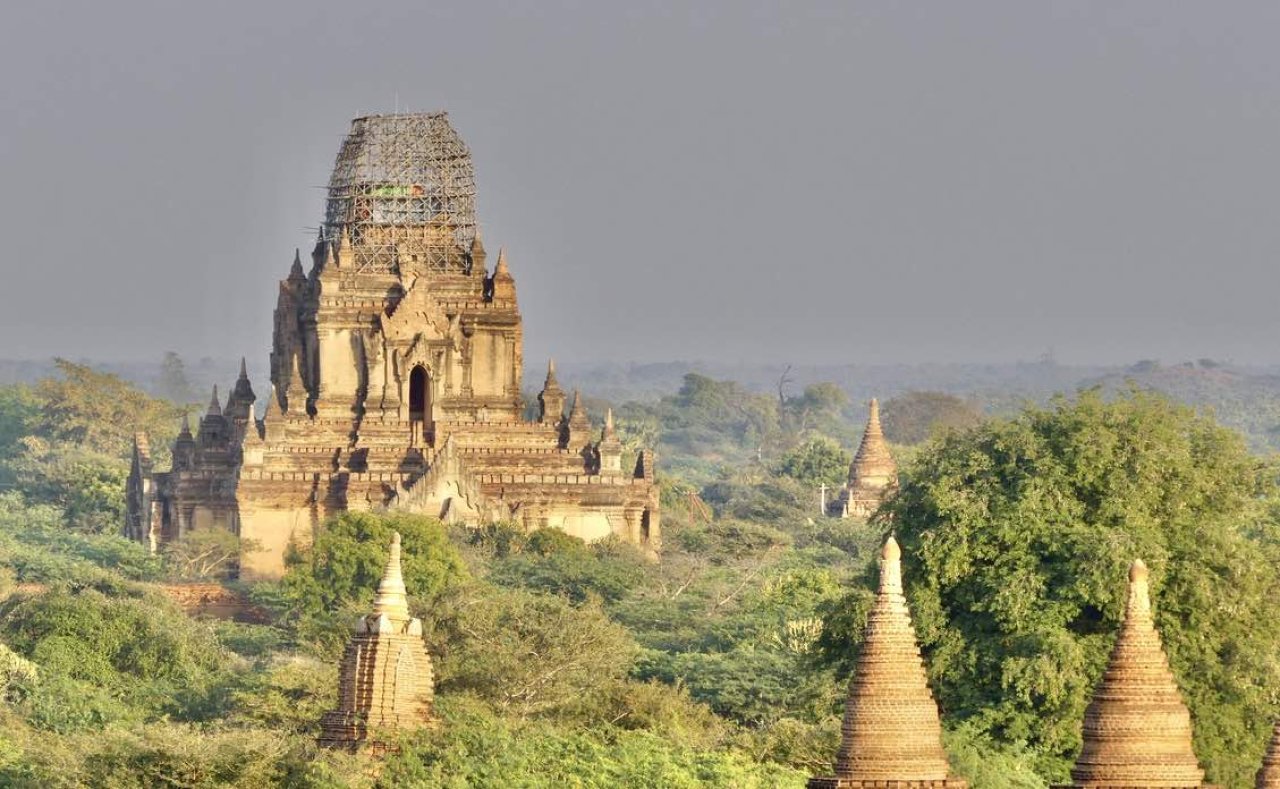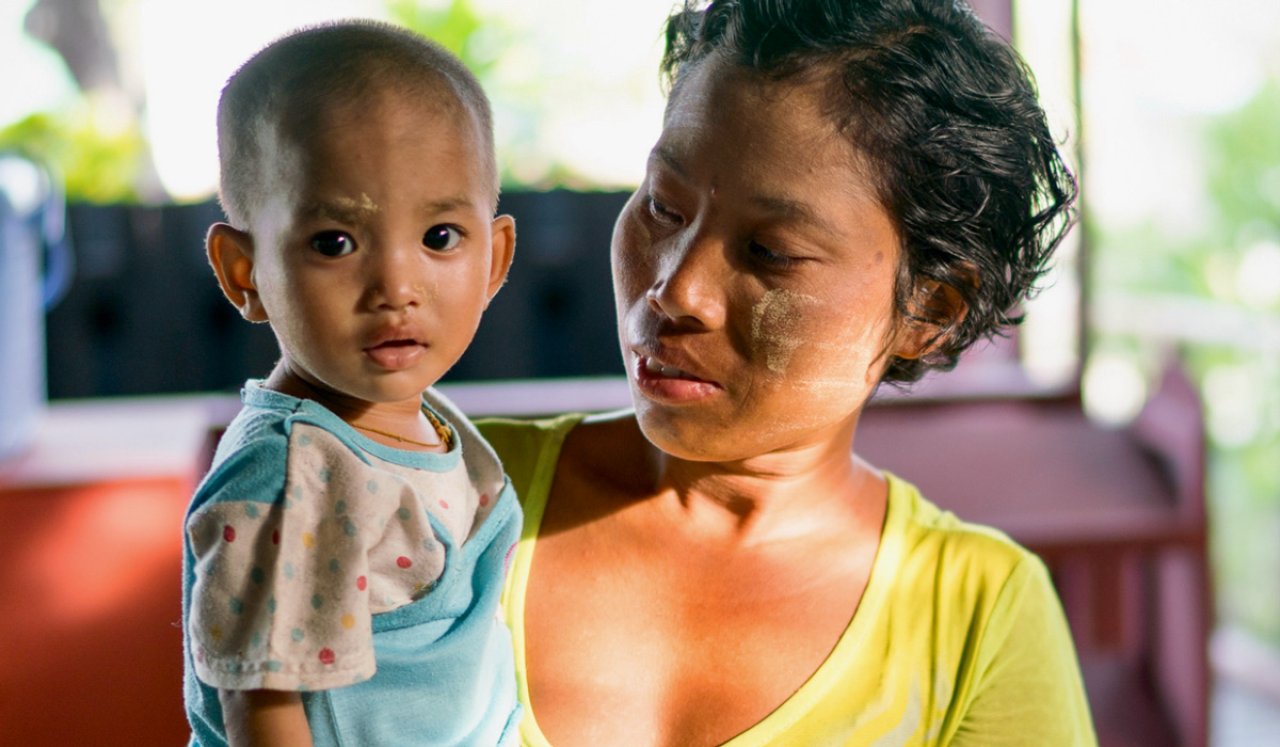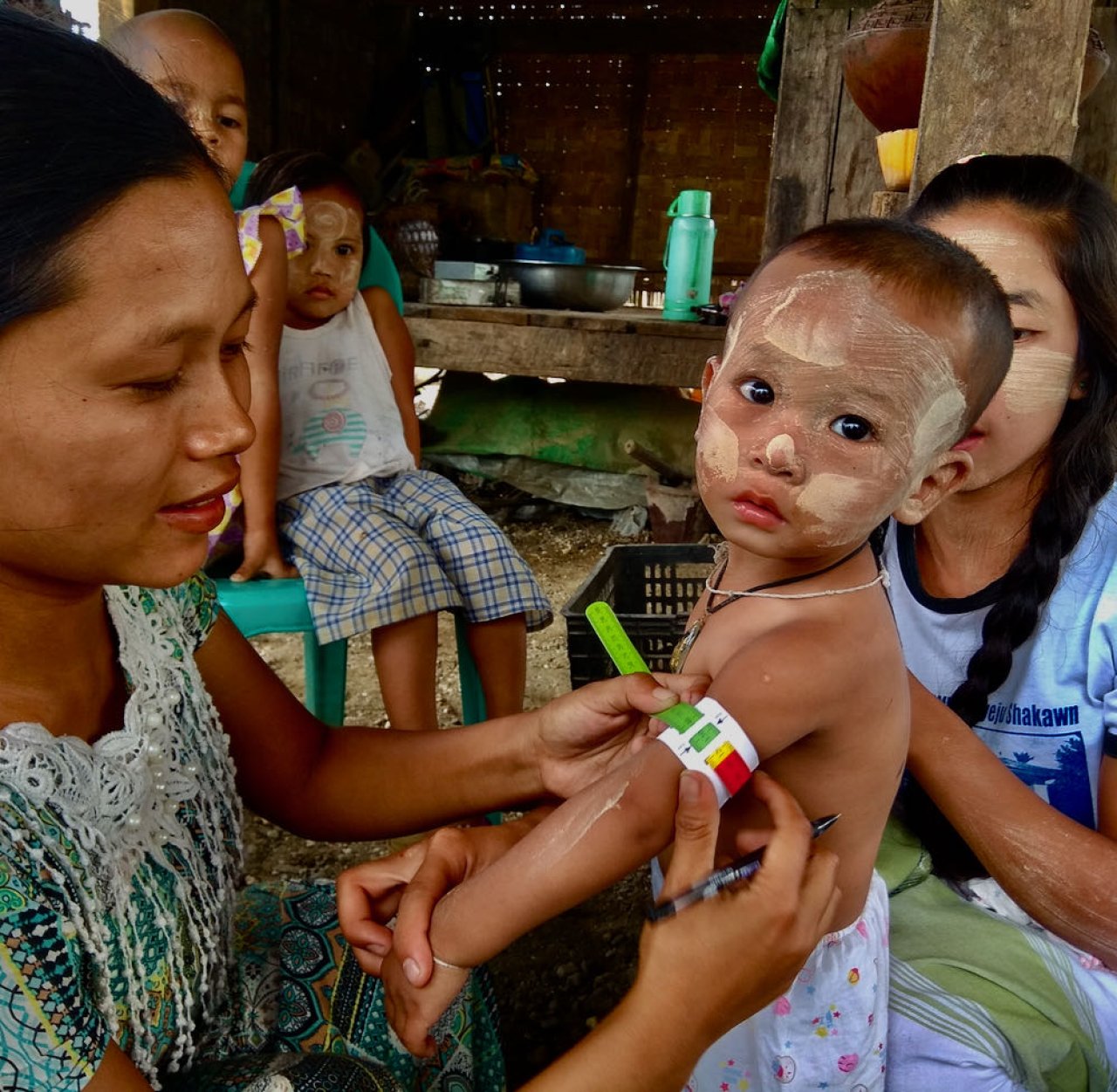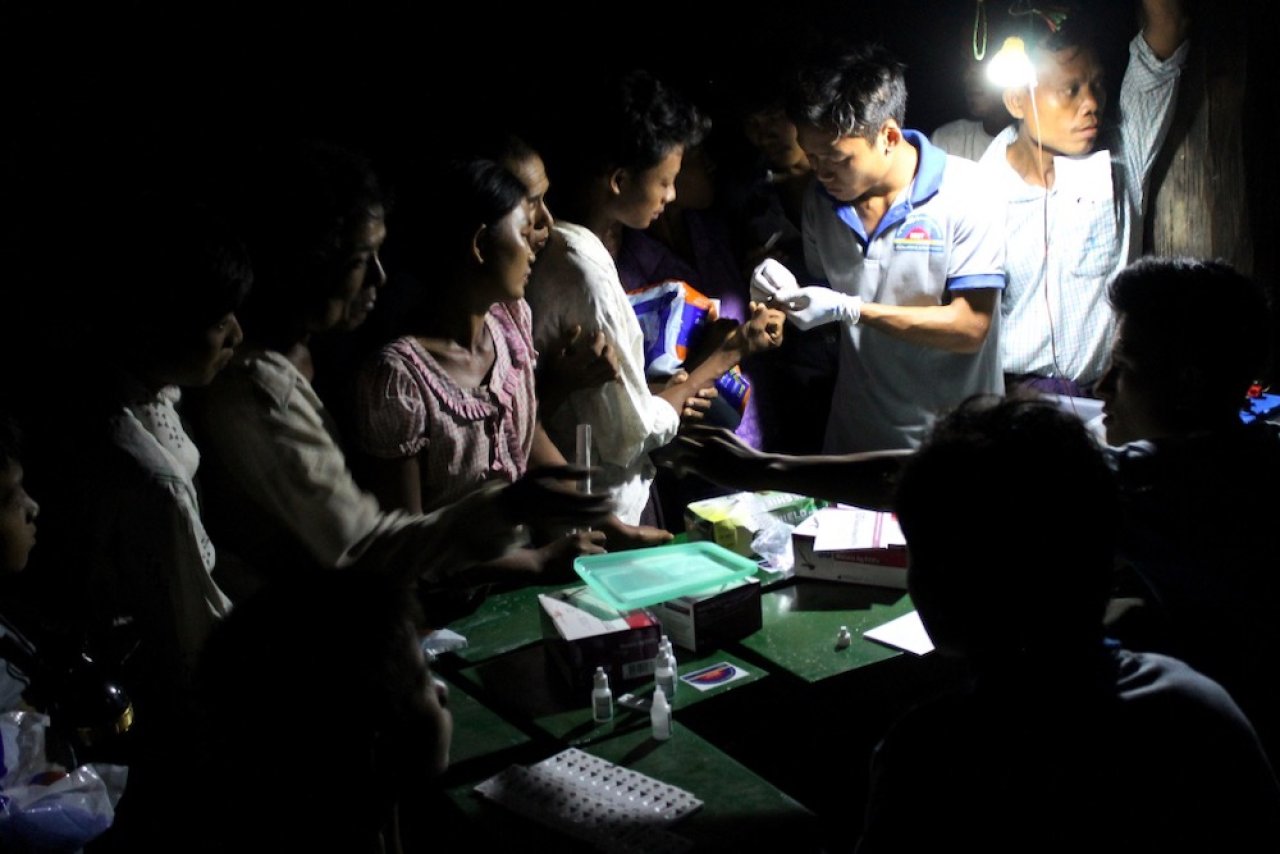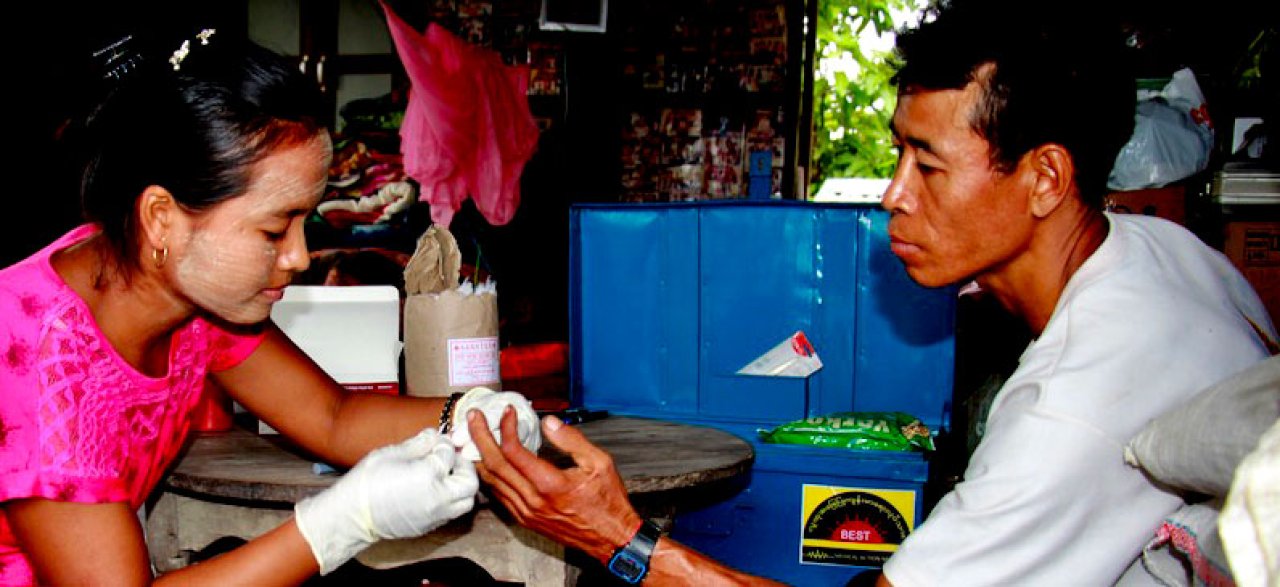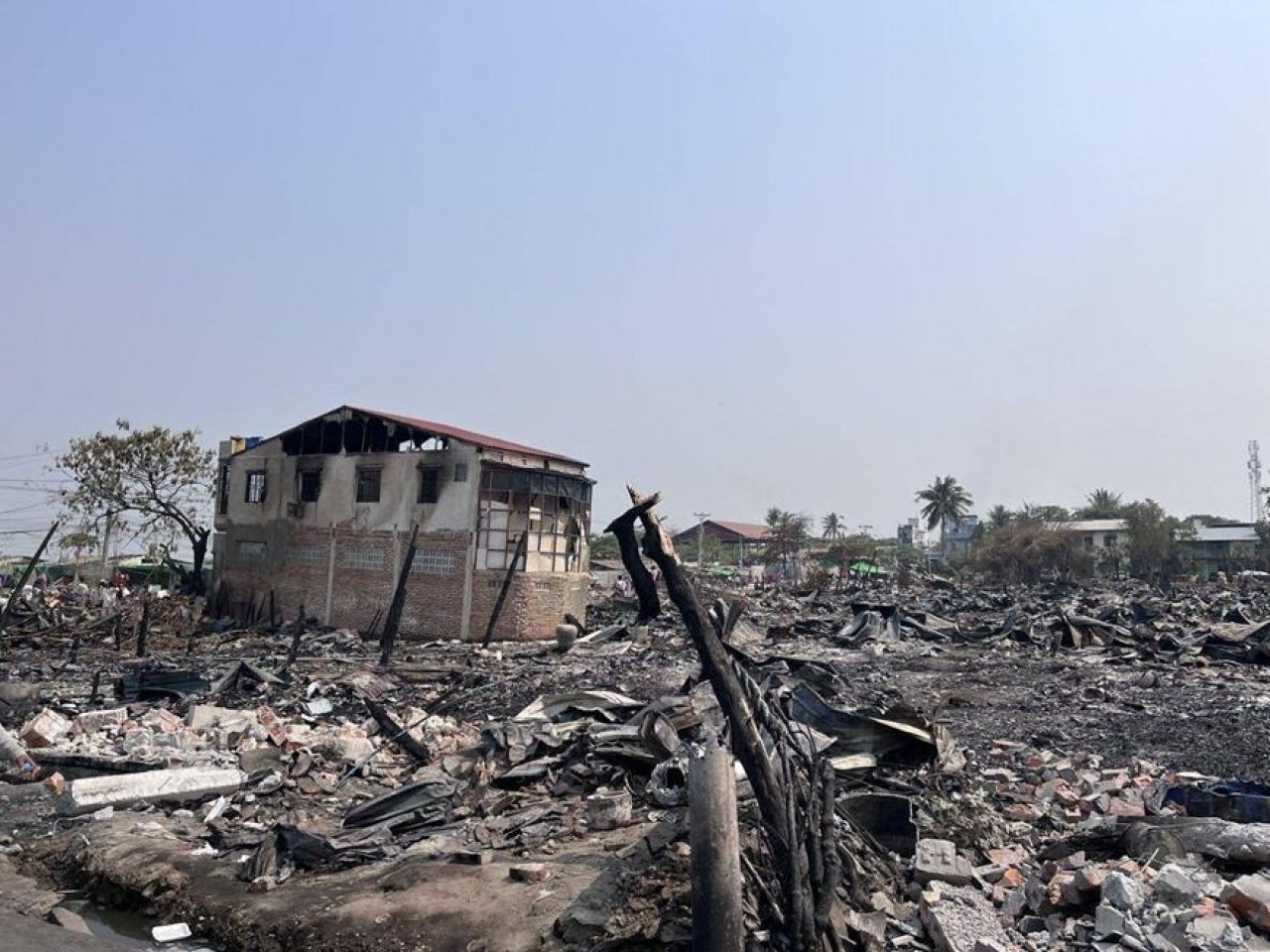
Earthquake in Myanmar
On 28 March, a very powerful earthquake (7.7) struck Myanmar, with the epicenter close to Mandalay, the country's 2nd-largest city. Large areas have been destroyed, thousands of people died, many more injured and there is a desperate need for clean water, food and everything else. Medical treatment is difficult to get as hospitals are overwhelmed. Medical Action Myanmar responded as soon as possible.
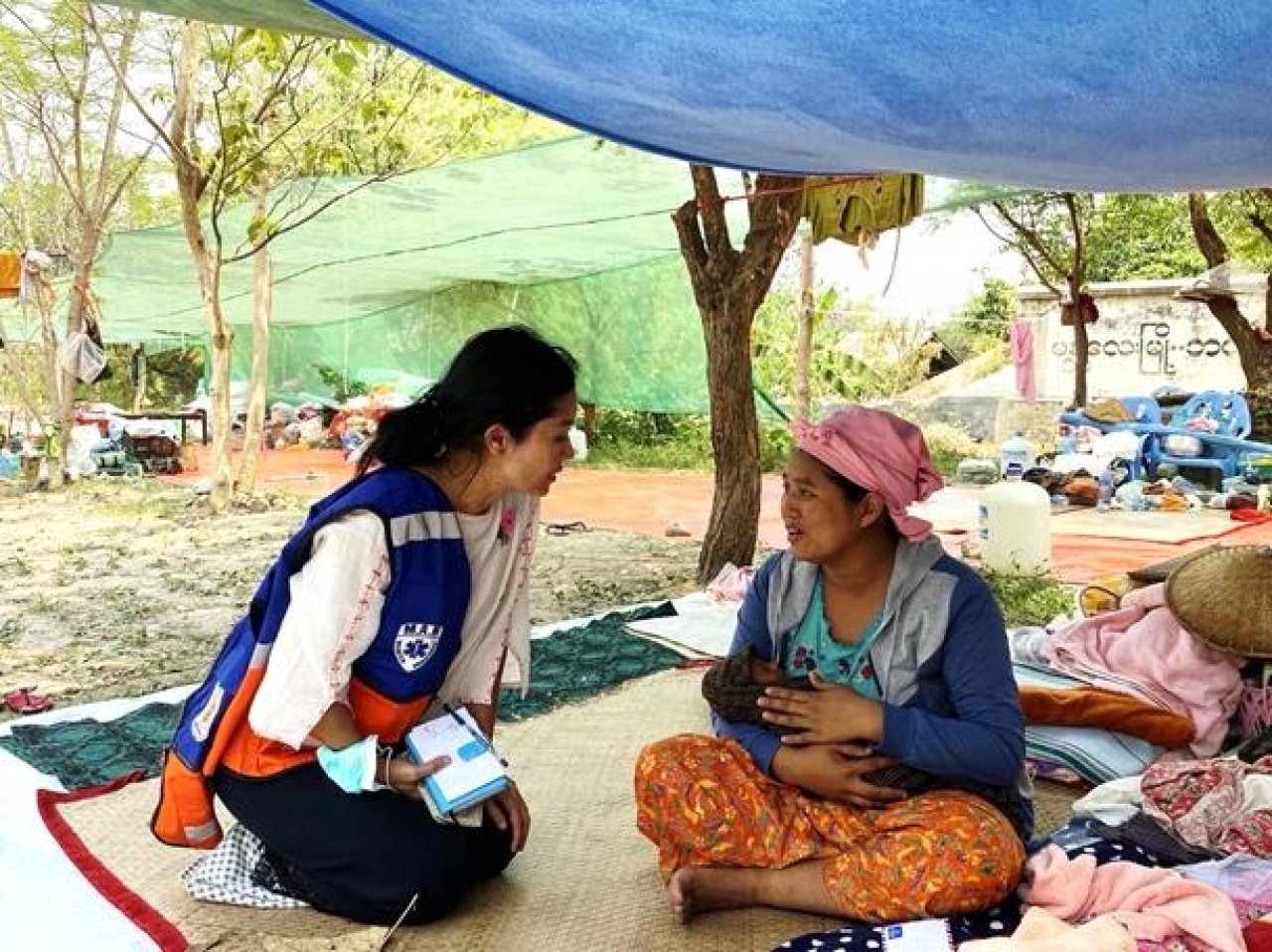
Aid in affected area
After a quick one day exploration we started to work with a number of local organizations on the 1st of April.
We focussed on medical treatment, referral of severely wounded, and large scale supply of drinking water, food and goods.
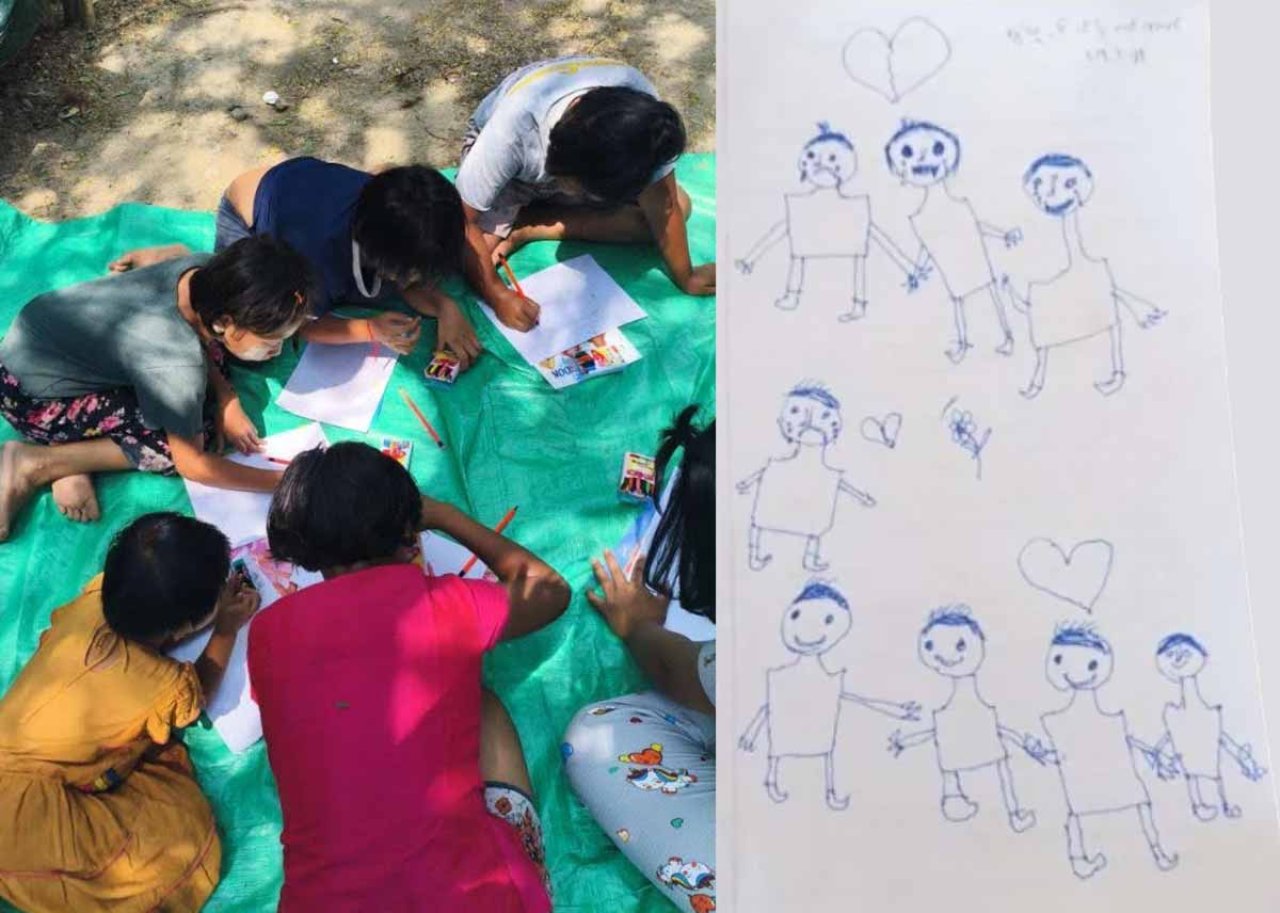
We are trying to provide mental support, including "Art -therapy" for children after they lost family members during the earthquake.
Notice that many figures have tears in their eyes.
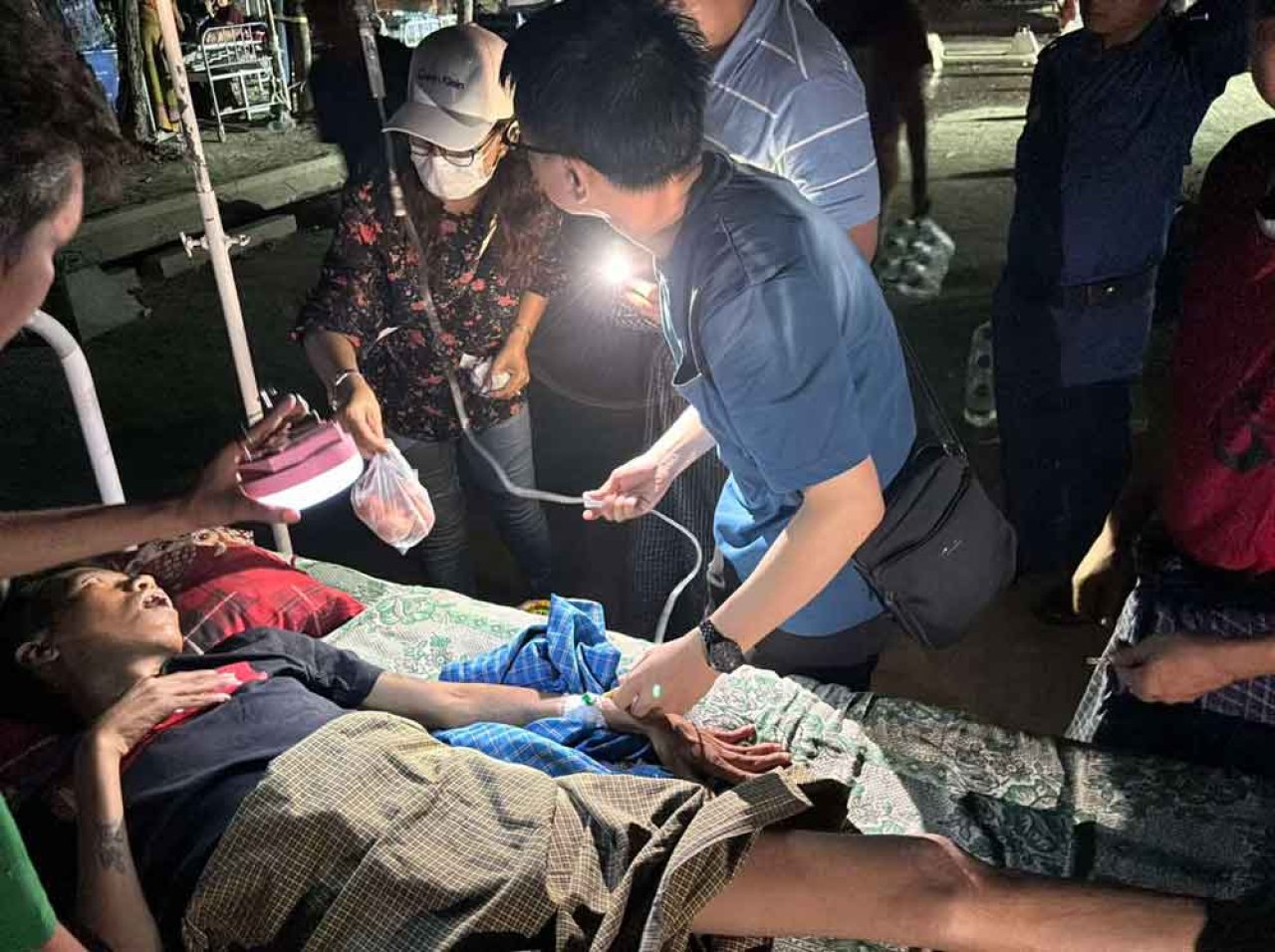
We currently have a group of 62 MAM staff, including 14 medical doctors, who all volunteered to work in the most severely hit region with local organizations.
These groups are operating in 18 teams, working in different locations, where we have identified most destruction and needs.
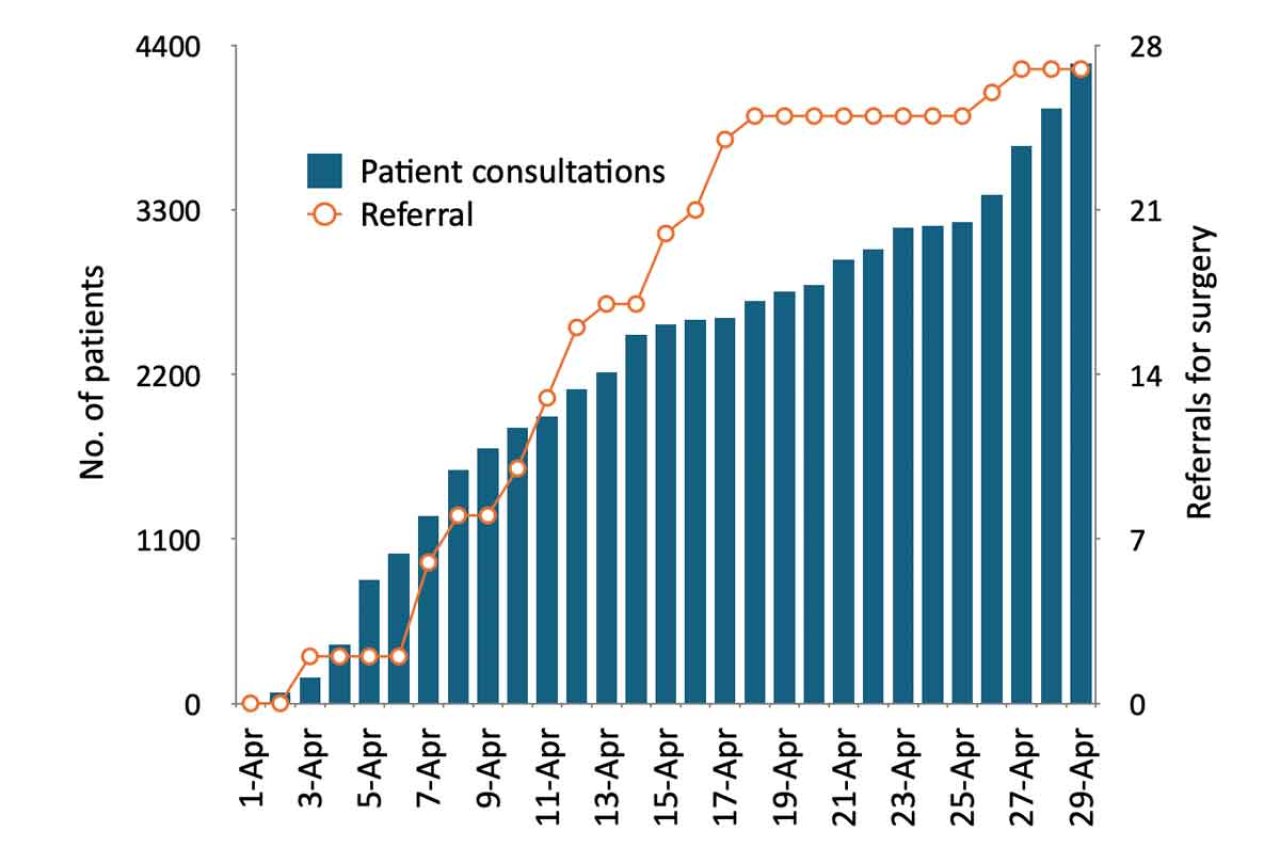
Consultations
This graph shows the number of beneficiaries supported after Earthquake as of April 29th.
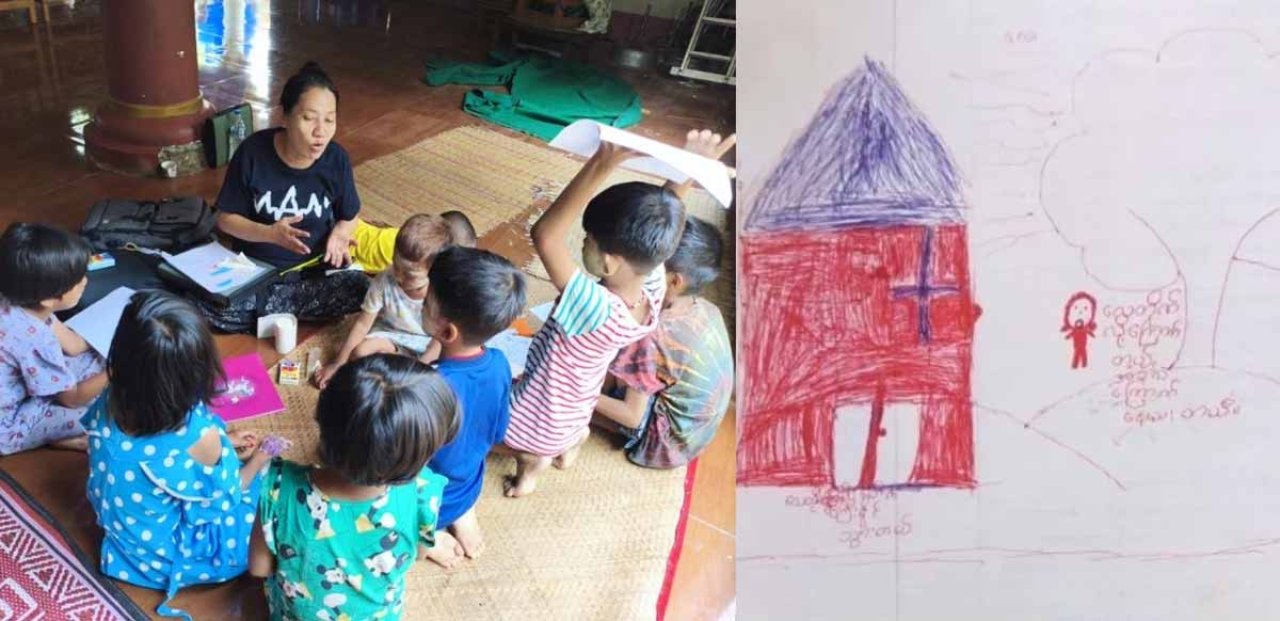
Drawings made by children during mental health support session
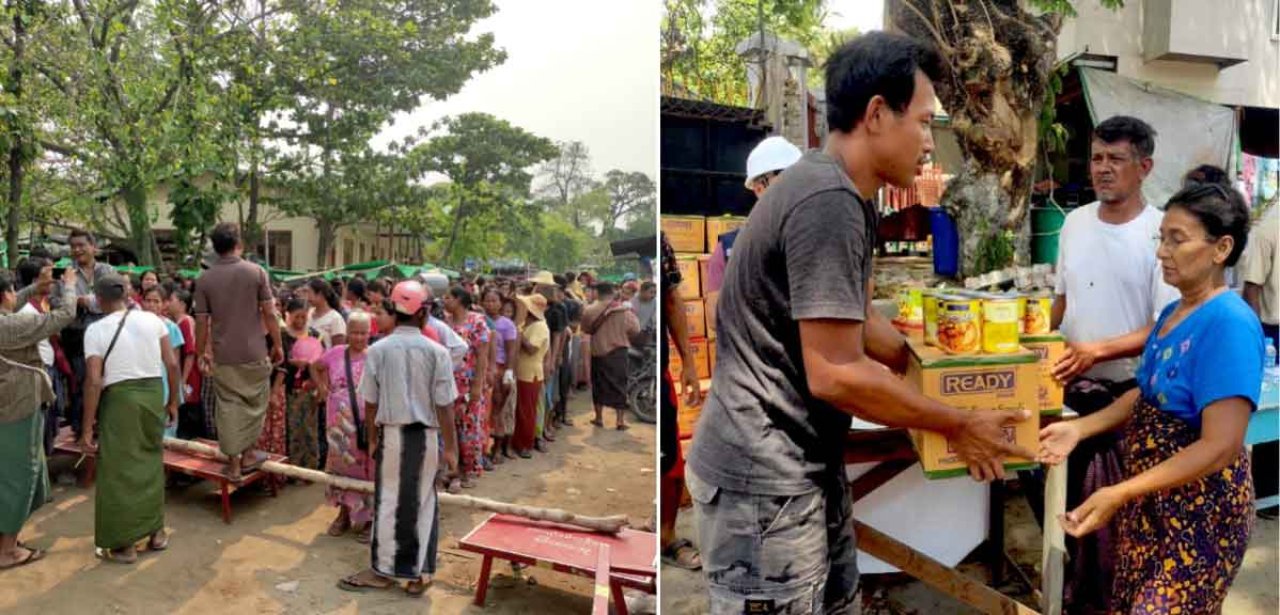
Food and cash distribution
Food distribution by teams of Medical Action Myanmar
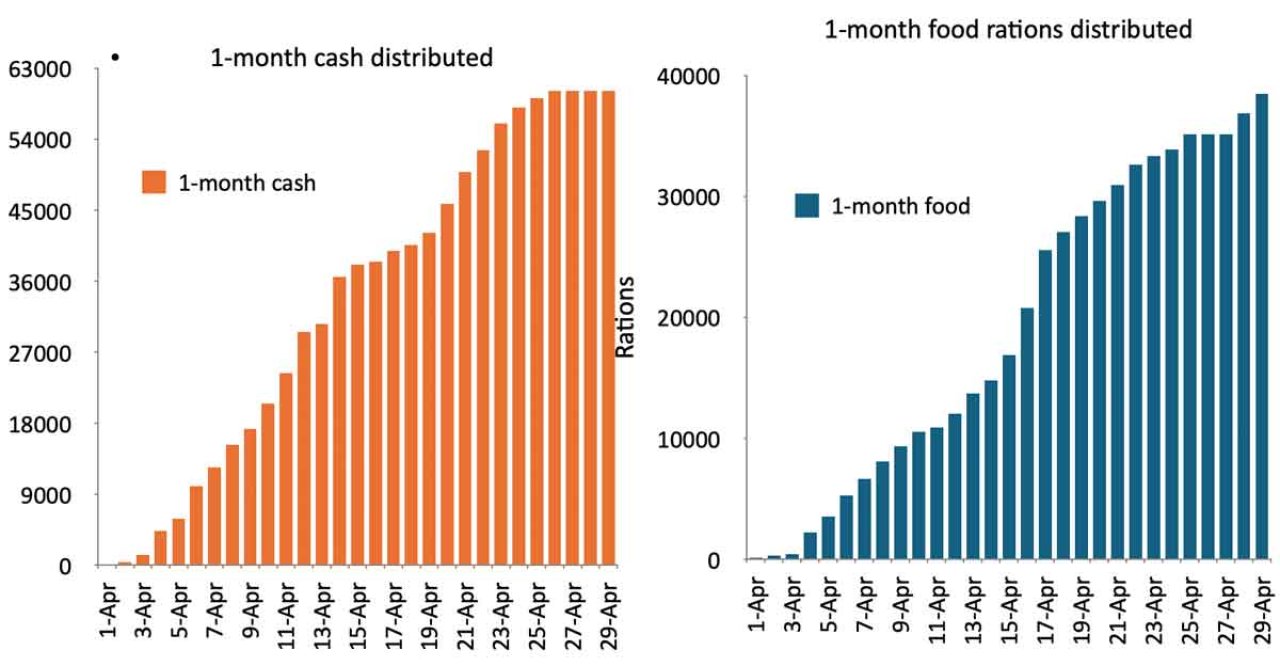
Number of beneficiaries supported with food and cash after the earthquake as of April 29th.
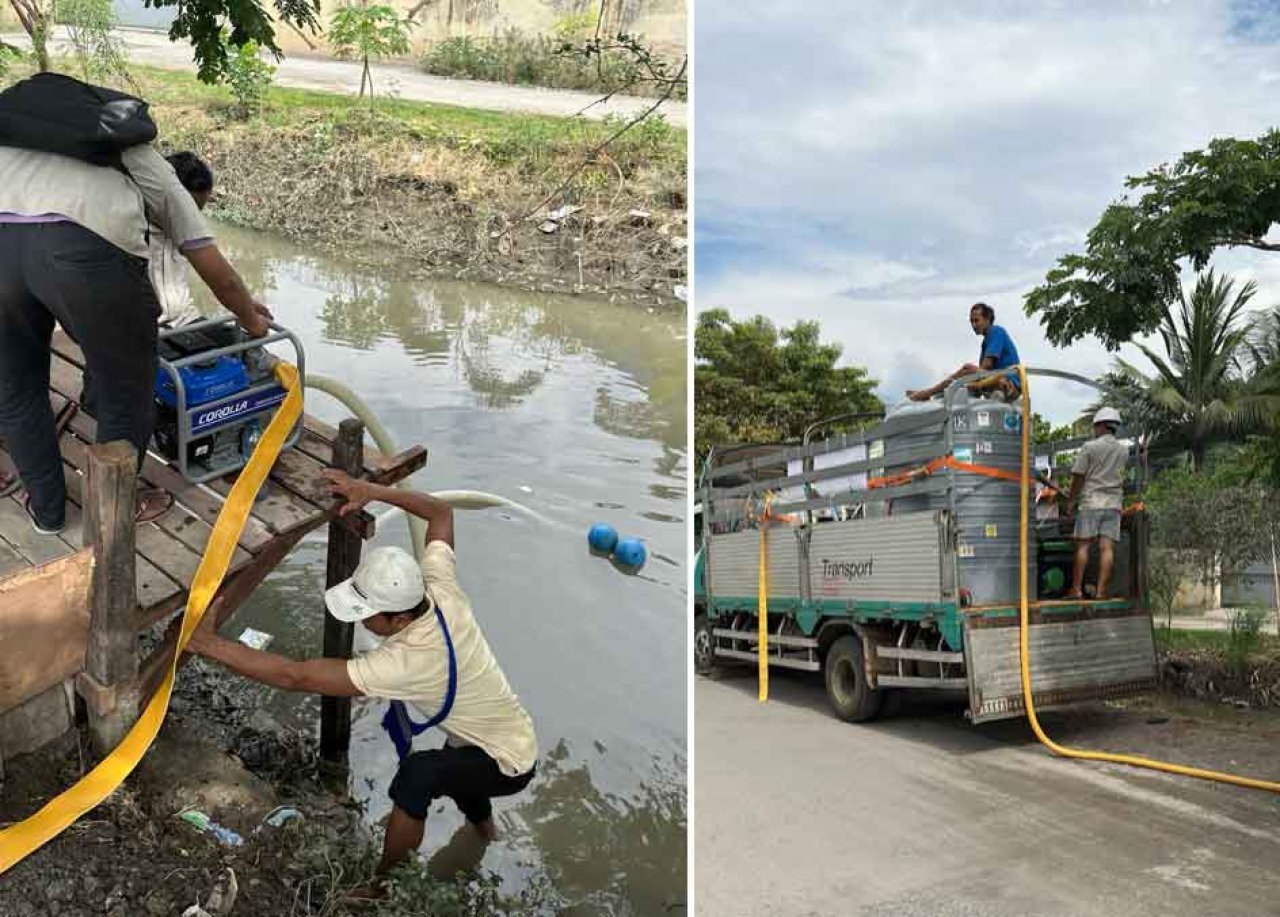
Water support
Support of two water filtration systems of 5,000 lite per hour at Mandalay
